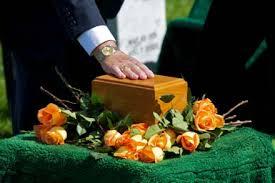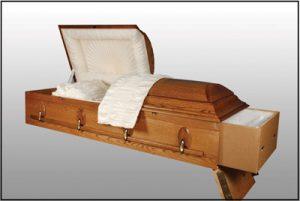When you have lost a loved one, one of the decisions you need to make is about funeral services and the manner of interment. Every family is diverse and they have different preferences for services. Their decisions can be influenced by their faith beliefs, cultural practice, personal preferences and the costs involved. The services can be extravagant or simple and they can be private or public.
The two common options for deposing the remains include burial and cremation.

Going for cremation is not an easy decision to make -
Usually, the deceased loved one may have a personal wish prior to death and it should be taken into consideration. One of the reasons people desire to be cremated is that they do not want their bodies to decay on the ground.
Other decisions are based on cultural and religious inclinations.Islam and Orthodox Judaism, for instance, do not regard the process. Hinduism, on the other hand, has long believed and practiced the art of cremation. They view the burning as a way not just of disposing the physical remains but also to aid the departed soul into the next world.
Other religions, like Christianity, believe that ground burial embodies the death and resurrection of Christ. The decision is dependent on the wishes of the deceased, if any, or the preferences of the bereaved family.
In modern times, cremation has become broadly accepted because of philosophical, environmental, technological and social reasons. Public hygiene is one of the top goals. Cremation can be completed in a matter of hours, saves land space and does not necessitate embalming.
On the other hand, there are people who prefer traditional funeral services -
While cremation can be more cost-effective, many still respect the process of natural decomposition. They believe that it is an act of reverence to the deceased. In the case of burial, the bereaved loved ones need to consider the use of a casket or alternative containers to keep the body as well as the burial plot.
Usually, families prefer the graveyard or the cemetery because it provides a physical place where they can memorialize their deceased loved ones, visiting them and placing flowers on the tombstones as an act of love and remembrance.
Burial is the most expensive kind of funeral because other than the casket or alternative container and the burial plot or crypt, the expenses include embalming, dressing, rental of funeral homes and transport vehicles, and other funeral items and services. Most service providers also charge a basic fee for the abovementioned services and an additional fee if a graveyard service will be performed.

Traditional funeral services that end in burial often have viewing or -visitation services and the prayer or committal service. Decisions that need to be made also include where the services will be held, whether an open or closed casket will be implemented, and if other traditions such as releasing white balloons or monarch butterflies will be done.
Again, the choice between burial and cremation is dependent on many factors, the preference of the deceased and his family taking priority. Since funeral services is a way to honor the memory of a deceased loved one, what is important is that their individual values be respected.
